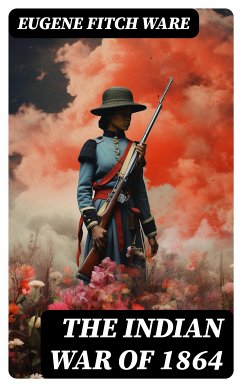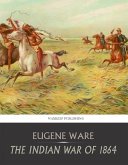Eugene Fitch Ware's "The Indian War of 1864" encapsulates a pivotal moment in the American frontier's tumultuous history. Employing a vivid narrative style interwoven with personal accounts and rich historical detail, Ware illustrates the complexities of this conflict, focusing on the struggles between Native American tribes and U.S. military forces. His immersive exploration of the war's events is framed within the broader context of westward expansion and the pervasive themes of colonialism and displacement. Through meticulous research, Ware sheds light on the psychological and social dimensions of the combatants, thereby offering readers a nuanced perspective that transcends mere military chronicle. Eugene Fitch Ware, a multifaceted figure-poet, soldier, and journalist-was deeply influenced by his experiences serving in the Civil War and his love for the American landscape. His background as a frontier settler and later a participant in the war against the Plains tribes profoundly shaped his perspective and motivated him to document the narratives of both the soldiers and Native Americans. Ware's empathy towards those involved is evident throughout his work, making it a significant historical reflection. This book is highly recommended for anyone interested in American history, military studies, or indigenous rights. Ware's work invites readers to engage critically with the past while offering valuable insights into the consequences of conflict and cultural encounter. In doing so, "The Indian War of 1864" stands not only as a historical text but as a timeless reminder of the complexities of the human experience.
Dieser Download kann aus rechtlichen Gründen nur mit Rechnungsadresse in A, B, BG, CY, CZ, D, DK, EW, E, FIN, F, GR, H, IRL, I, LT, L, LR, M, NL, PL, P, R, S, SLO, SK ausgeliefert werden.









![Transforming Under Fire: the Atlanta Campaign of 1864 [Illustrated Edition] (eBook, ePUB) Transforming Under Fire: the Atlanta Campaign of 1864 [Illustrated Edition] (eBook, ePUB)](https://bilder.buecher.de/produkte/42/42399/42399623m.jpg)